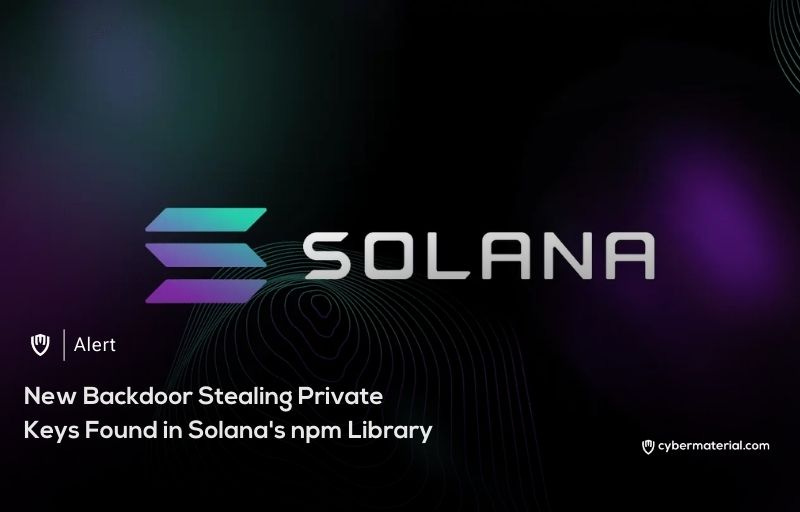
Cybersecurity researchers have recently uncovered a backdoor in the widely-used @solana/web3.js npm library, a crucial package for developers building Node.js and web apps that interact with the Sola…

Cybersecurity researchers have recently uncovered a backdoor in the widely-used @solana/web3.js npm library, a crucial package for developers building Node.js and web apps that interact with the Sola…